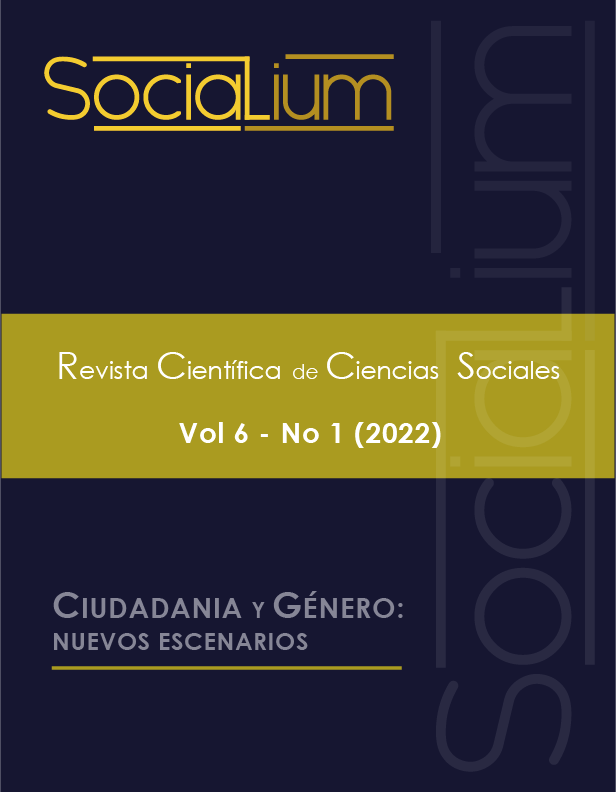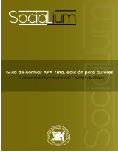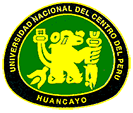Gender and citizenship in Peru: new scenarios and research agendas
DOI:
https://doi.org/10.26490/uncp.sl.2022.6.1.1376Keywords:
gender, citizenship, stage, researchAbstract
The way in which the state recognizes citizenship with respect to gender roles in Peru has been out of step with actual gender practices. For most of the period since Spanish colonization, the average citizen has been officially designated or imagined as a heterosexual male. Over the last half century, women have come to occupy independent citizenship roles in ways that compel them to conform to a model of maternal morality and domestic responsibility. In today's neo-extractivist economy, with the strong public voice of social conservatism and entrenched political corruption, this poses behavioral constraints and the risk of indebtedness. Very few policy changes have been directed at transforming male gender roles or targeting LGBTI citizens. I request more research on the implications of this situation to support the movements that fight so that all Peruvians, regardless of their gender identity or sexuality, live a full life.
Downloads
References
Alcalde, M. C. (2019). Home and the limits of belonging: Homophobia and return migration to Peru. Sexualities, 22( 5-6), 916-931. https://journals.sagepub.com/doi/abs/10.1177/1363460718773694F
Bernstein, E. (2012). Carceral politics as gender justice? The “traffic in women” and neoliberal circuits of crime, sex, and rights. Theory and society, 41(3), 233-259. https://link.springer.com/article/10.1007/s11186-012-9165-9
Blondet, C. (2002). El Encanto del Dictador: Mujeres y Política en la Década de Fujimori. Instituto de Estudios Peruanos. http://repositorio.iep.org.pe/handle/IEP/1012
Boesten. J. (2003). Poor women in Peru: Reproducers of poverty and poverty relievers. Women’s Studies Quarterly, 31(3/4), 113-128. https://librarysearch.stthomas.edu/discovery/openurl?institution=01CLIC_STTHOMAS&vid=01CLIC_STTHOMAS:STTHOMAS&lang
Boesten, J. (2012). The state and violence against women in Peru: Intersecting inequalities and patriarchal rule. Social Politics, 19(3), 362-382. https://doi.org/10.1093/sp/jxs011
Bueno-Hansen, P. (2010). Engendering transitional justice: Reflections on the case of Peru. Journal of Peacebuilding &
Development, 5(3), 61-74. https://doi.org/10.1080/15423166.2010.566611431450
Bueno-Hansen, P. (2018). The emerging LGBTI rights challenge to transitional justice in Latin America. International Journal of Transitional Justice, 12(1), 126-145. https://doi.org/10.1093/ijtj/ijx031
Bueno-Hansen, P. (2020). Derechos Feministas y Humanos en el Perú: Descolonizando la Justicia Transicional. Instituto de Estudios Peruanos. https://fondoeditorial.iep.org.pe/producto/derechos-feministas-y-humanos-en-el-peru-decolonizando-la-justicia-transicional/
Campuzano, G. (2008). Building Identity While Managing Disadvantage: Peruvian Transgender Issues. IDS Working Paper No. 310. Institute of Development Studies, University of Sussex. https://opendocs.ids.ac.uk/opendocs/handle/20.500.12413/4169
Cavallero, L. and V. Gago. (2019). Una Lectura Feminista de la Deuda. Vivas, Libres y Desendeudadas Nos Queremos. Fundación Rosa Luxemburgo. https://rosalux-ba.org/wp-content/uploads/2019/05/lectura-feminista-deuda-PANTALLAS.pdf
Chambers, S. C. (1999). From Subjects to Citizens: Honor, Gender and Politics in Arequipa, Peru, 1780-1854. Pennsylvania State University Press.
Chaney, E. M. (1973). Old and new feminists in Latin America: the case of Peru and Chile. Journal of Marriage and the Family, 35(2), 331-343. https://www.jstor.org/stable/350663
Collyns, D. (2020). Scandal overshadows Peru election’s focus on gender equality. The Guardian, International Edition, 24 January 2020. https://www.theguardian.com/global-development/2020/jan/24/peru-elections-gender-equality-women-lgbt
Cookson, T.P. (2018). Unjust Conditions. University of California Press.
Crenshaw, K. (1989). Demarginalizing the intersection of race and sex: A black feminist critique of antidiscrimination doctrine, feminist theory and antiracist politics. The University of Chicago Legal Forum, 1989, 139-167. https://philpapers.org/rec/CREDTI
Ewig, C. (2006). Hijacking global feminism: Feminists, the Catholic Church, and the family planning debacle in Peru. Feminist Studies, 32(3), 633-659. https://doi.org/10.2307/20459109
Fayanás, E. (2017). La cultura Inca y la Sexualidad. Nueva Tribuna. https://www.nuevatribuna.es/articulo/historia/cultura-inca-sexualidad/20170306190802137423.html.
Gago, V. (2015). Financialization of popular life and the extractive operations of capital: A perspective from Argentina. South Atlantic Quarterly, 114(1), 11-28. https://read.dukeupress.edu/south-atlantic-quarterly/article-abstract/114/1/11/3706/Financialization-of-Popular-Life-and-the?redirectedFrom=fulltext
Gago, V. and S. Mezzadra. (2017). A critique of the extractive operations of capital: Toward an expanded concept of extractivism. Rethinking Marxism, 29(4), 574-591. https://ri.conicet.gov.ar/handle/11336/96949
Goetz, A. M. (2007). Political cleaners: Women as the new anti corruption force? Development and Change, 38(1), 87-105. https://onlinelibrary.wiley.com/doi/abs/10.1111/j.1467-7660.2007.00404.x
Huaita, M., R. Chanjan, y M. A. Saravia. 2019. Género y corrupción: Una mirada a los impactos diferenciados de la corrupción en el Perú. Instituto de Democracia y Derechos Humanos de la Pontificia Universidad Católica del Perú.
International IDEA. (2009). Compulsory Voting. Idea. https://www.idea.int/data-tools/data/voter-turnout/compulsory-voting
Irons, R. (2019). (Re)produciendo profesionales peruanos: La asistencia social y la ciudadanía-materna de las madres quechuas empobrecidas. Anthropologica, 43, 227-253. http://www.scielo.org.pe/scielo.php?pid=S0254-92122019000200010&script=sci_abstract
James, D. (2021). Life and debt: A view from the south. Economy and Society, 50(1), 36-56. https://doi.org/10.1080/03085147.2021.1841930
Karim, L. (2008). Demystifying micro-credit: The Grameen Bank, NGOs, and neoliberalism in Bangladesh. Cultural
Dynamics, 20(1), 5-29. https://journals.sagepub.com/doi/10.1177/0921374007088053
Karim, S. (2011, 9 de agosto). Madame Officer. Americas Quarterly. http://www.americasquarterly.org/node/2802
Lavinas, L. (2018). The collateralization of social policy under financialized capitalism. Development and Change, 49(2), 502-517. https://onlinelibrary.wiley.com/doi/epdf/10.1111/dech.12370
Lust, J. (2019). The rise of a capitalist subsistence economy in Peru. Third World Quarterly, 40(4), 780-795. https://www.researchgate.net/publication/329229487_The_rise_of_a_capitalist_subsistence_economy_in_Peru
Lust, J. (2021). A class analysis of the expansion of COVID-19 in Peru: The case of Metropolitan Lima. Critical Sociology. https://journals.sagepub.com/doi/pdf/10.1177/0896920521991612
Masson, A. (2020). A critique of anti-carceral feminism. Journal of International Women's Studies, 21(3), 64-76. https://vc.bridgew.edu/jiws/vol21/iss3/6/
Morgan, L.M., y E.F.S. Roberts. (2012). Reproductive governance in Latin America. Anthropology & medicine, 19(2), 241-254. https://www.tandfonline.com/doi/abs/10.1080/13648470.2012.675046?journalCode=canm20
Mujica, J. and D. Tuesta. (2014). Femicide penal response in the Americas: Indicators and the misuses of crime statistics, evidence from Peru. International Journal of Criminology and Sociological Theory, 7(1), 1-21. https://www.researchgate.net/publication/305827112_Femicide_Penal_Response_in_the_Americas_Indicators_and_the_Misuses_of_Crime_Statistics_evidence_from_Peru
Palmater, P. (2016). Shining light on the dark places: Addressing police racism and sexualized violence against Indigenous women and girls in the national inquiry. Canadian Journal of Women and the Law, 28(2), 253-284. https://www.utpjournals.press/doi/abs/10.3138/cjwl.28.2.253
Paredes, M. (2008). Weak Indigenous Politics in Peru. CRISE Working Paper, (33), 1-28. https://assets.publishing.service.gov.uk/media/57a08bc0e5274a27b2000d25/wp33.pdf
Piccoli, E. (2014). “Dicen que los cien soles son del Diablo”: L’interprétation apocalyptique et mythique du Programa Juntos dans les communautés andines de Cajamarca (Pérou) et la critique populaire des programmes sociaux. Social Compass, 61(3), 328-347. https://www.researchgate.net/publication/283250956_Dicen_que_los_cien_soles_son_del_Diablo_L'interpretation_apocalyptique_et_mythique_du_Programa_Juntos_dans_les_communautes_andines_de_Cajamarca_Perou_et_la_critique_populaire_des_programmes_sociaux
Rousseau, S. (2006). Women’s citizenship and neopopulism in Peru under the Fujimori regime. Latin American Politics and Society, 48(1),117-142. https://www.cambridge.org/core/services/aop-cambridge-core/content/view/3BCE75D4F517CFDA3A1EB5E35E0E7E73/S1531426X00007299a.pdf/womens-citizenship-and-neopopulism-peru-under-the-fujimori-regime.pdf
Rousseau, S. (2020). Antigender Activism in Peru and Its Impact on State Policy. Politics & Gender, 16(1), e5. https://doi.org/10.1017/S1743923X20000070
Sacks, K.B. (1989). Toward a unified theory of class, race, and gender. American Ethnologist, 16(3), 534-550. https://doi.org/10.1525/ae.1989.16.3.02a00080
Silverblatt, I.M. (1987). Moon, Sun, and Witches: Gender Ideologies and Class in Inca and Colonial Peru. Princeton University Press. https://www.researchgate.net/publication/26502318_Irene_Silverblatt_Moon_Sun_and_Witches_Gender_Ideologies_and_Class_in_Inca_and_Colonial_Peru_Princeton_University_Press_1987_266_paginas
Swenson, E. (2012). Warfare, Gender, and Sacrifice in Jequetepeque, Peru. Latin American Antiquity, 33(2), 167- 193. https://www.academia.edu/4291138/Swenson_2012_Warfare_Gender_and_Sacrifice_in_Jequetepeque_Peru_Latin_American_Antiquity
Vincent, S. (2012). Dimensions of Development: History, Community, and Change in Allpachico, Peru. University of Toronto Press. https://books.google.com.pe/books?id=dv92J646vfgC&printsec=frontcover&redir_esc=y#v=onepage&q&f=false
Weismantel, M. (2004). Moche sex pots: reproduction and temporality in ancient South America. American Anthropologist, 106(3), 495-505. https://anthrosource.onlinelibrary.wiley.com/doi/abs/10.1525/aa.2004.106.3.495
Downloads
Published
Issue
Section
License
Copyright (c) 2022 Susan Vincent

This work is licensed under a Creative Commons Attribution 4.0 International License.








.jpg)












